‘About to get really bad’: Aussie mercenary’s chilling warning to world
An Australian mercenary fighting in Ukraine says indescribable horrors are taking place and warned the world things are “about to get really bad”.
An Australian mercenary fighting the Russians in Ukraine has warned the world Russia is starting to turn the screw and the situation is “about to get really bad”.
The volunteer — who news.com.au is keeping anonymous — said the level of death and destruction waged by Moscow has gone up another level.
He said that when he travelled to Ukraine to join the International Legion, it was clear that Russia had started gaining a lot of momentum.
“As soon as I made it to the Legion I learned that the 1st and 2nd battalion was completely wiped out,” he told news.com.au.
“Myself and a few people left. Russia has learnt how to start winning at a greater rate.”
After leaving the legion, the fighter said he joined an elite unit. He now serves directly in Ukraine’s Armed Forces.
“I will be going to the most dangerous place in the war,” he said.
“You couldn’t imagine things here. The enemy is ruthless and their soldiers have done such bad things to the civilians.
“If Ukraine doesn’t continue getting help from other countries, or it stops, Ukraine won’t exist... not as we know it.”
However, he stressed he would never tarnish Ukraine’s name.
“I have never had a negative experience that was intentional from the Ukrainians,” he said.
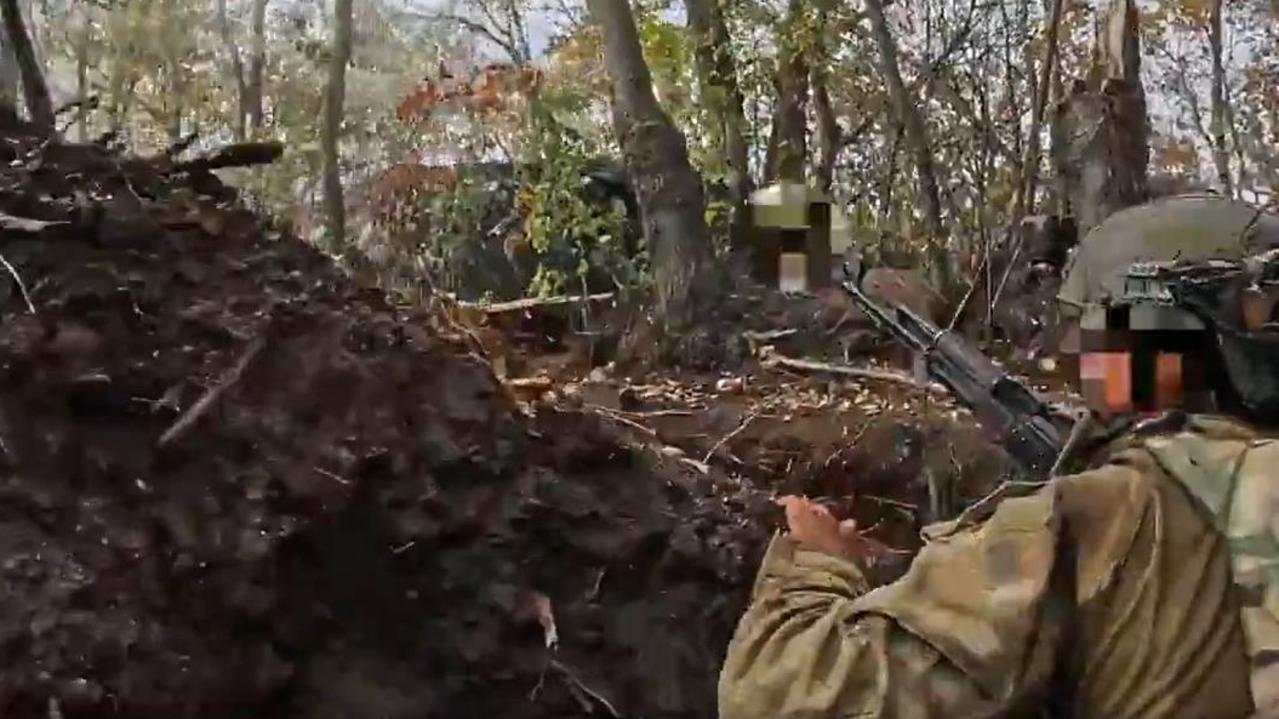
Russia turning the screw
The Australian fighter’s warning corroborates what experts and analysts are saying about the bloody conflict that has now dragged on for 32 months — leaving troops exhausted and suffering high casualties.
This week the major new development in the region was the introduction of North Korean soldiers — who have travelled to fight alongside Russia.
On Friday, Ukrainian President Volodymyr Zelensky warned that Russia was planning to send North Korean troops into battle against his country as early as Sunday. He has claimed North Korea is training 10,000 soldiers to support Russia.
South Korea, NATO and the United States claim thousands of North Korean troops are already training in Russia.
Meanwhile, the situation on the battlefield remains dire for Ukraine.
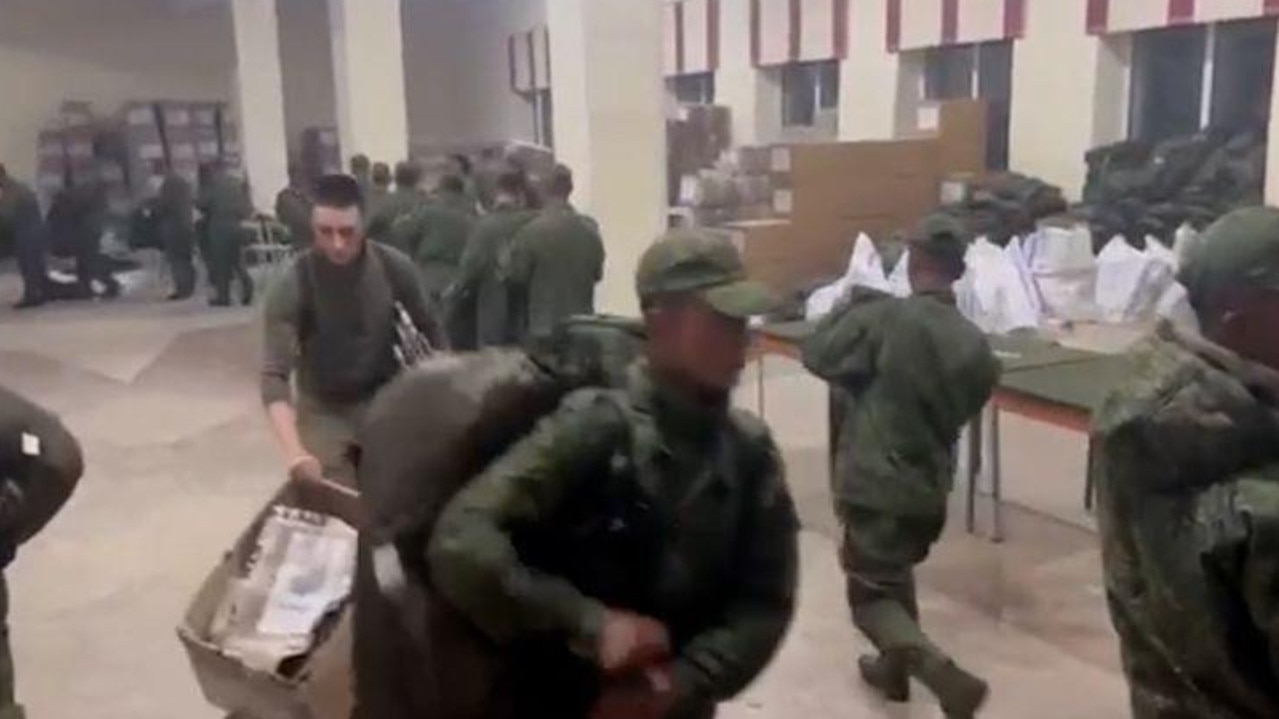
Russia has been making major gains in recent weeks, advancing at multiple points along the 1000km front line, despite suffering horrendous numbers of casualties.
The US estimates that more than 600,000 Russians have been killed or maimed in the conflict so far.
Vladimir Putin, however, appears to be undeterred by the loss of life — which is a chilling sign for Ukraine given Moscow’s vast superiority in troop numbers and firepower.
Ukraine’s decision earlier this month to withdraw its forces from Vuhledar, a heavily fortified position at the junction of the eastern and southern fronts, has deepened concerns. The retreat was ordered to avoid the risk of Russian encirclement.
President Zelensky tried to sugar-coat the move. He said the lives of the soldiers who had provided “heroic service” was “more important than any buildings” — despite the fact that Vuhledar, like other towns captured by Russia, has been reduced to a sprawling ruin.
Russian forces are also making concerning gains in the conflict. They have encircled Pokrovsk, a key logistical hub in eastern Ukraine, and are pushing further south after securing the heights around Vuhledar.
A Ukrainian official told The Economist Russia’s next target is the city of Zaporizhia, a major industrial centre in southern Ukraine near a Russian-occupied nuclear power plant.
It is here where Australian troops were filmed fighting with Russians in dramatic helmet-footage taken from a trench.
Know more? Contact: Benjamin.graham@news.com.au
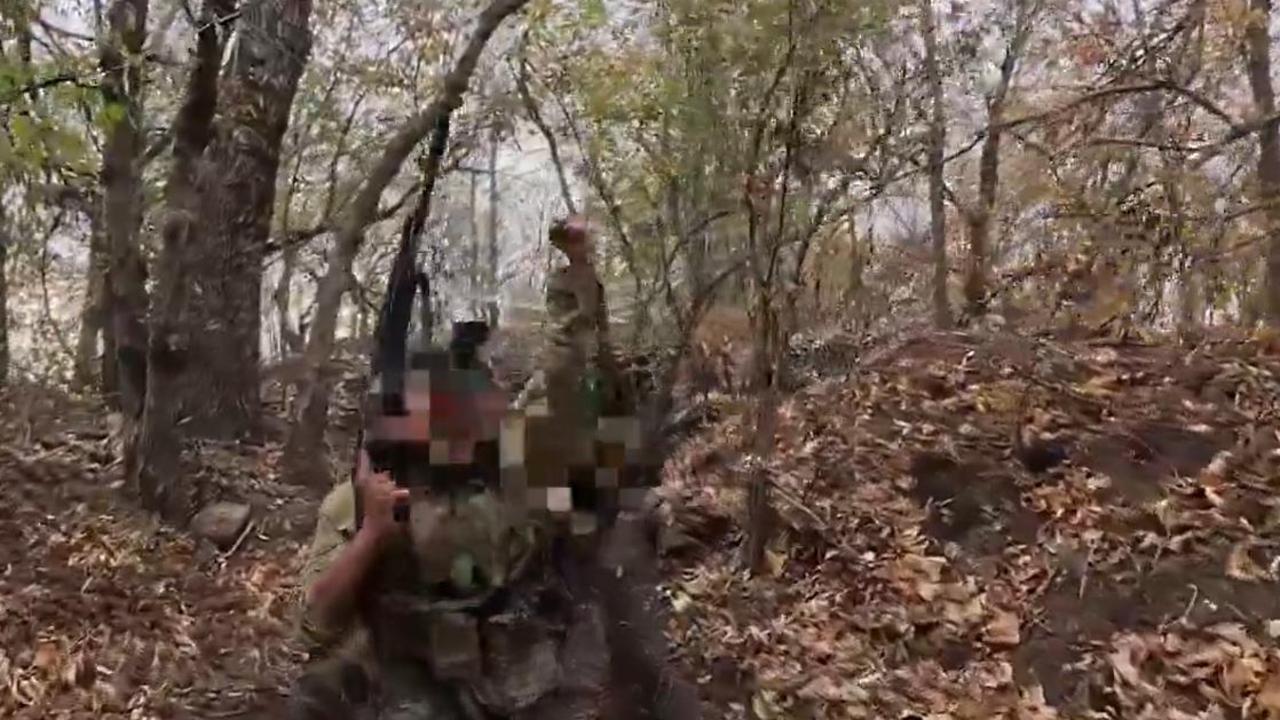
In the footage, an Aussie can be heard yelling “I’m going to skin you!” before he unleashes a barrage of shots into the surrounding foliage from his trench. He can then be seen firing shots in the air at a suspected drone.
The same official who spoke to The Economist said Russia may have already reclaimed as much as half of the territory Ukraine captured in the Kursk region during its August 2024 offensive, the only advance of note since Ukraine’s unsuccessful 2023 counteroffensive.
Uncertain future for Ukraine
It’s not just events on the battlefield that have Ukraine worried.
It has been relying heavily on western support to cover the immense financial cost of the conflict. In total, the war’s direct and indirect costs to Ukraine are likely to exceed $US1 trillion.
However, in an increasingly unstable world, Ukraine is facing uncertainty about who has its back.
In a positive sign this week, the G7 has finalised a $US50 billion loan, funded by interest on seized Russian assets.
However, the upcoming US election puts another spanner in the works. A Donald Trump win could cut off significant military aid, and he has vowed to put an end to the conflict within weeks of taking office.
He has not been exactly clear on how he would do that, but it would almost certainly involve conceding some territory to Russia — something that Ukraine would not agree to.
It has demanded a complete withdrawal of Russian forces from all territories it considers part of Ukraine, including Crimea, which Russia annexed in 2014, and the eastern regions of Donetsk and Luhansk, as well as areas occupied since the 2022 invasion.
“If I told you exactly what I would do I could never make the deal,” Mr Trump told podcaster Joe Rogan on Saturday.
“All I know is that I would meet with Putin … and I know exactly what I would say.
“I believe as president elect, I would get that war stopped and stopped fast.”
Even a Kamala Harris victory offers no guarantees. Although she has signalled she will support continued military assistance to Ukraine, she hasn’t outlined a distinct, separate policy on Ukraine to Joe Biden.
Meanwhile, some nations are starting to reduce spending. Germany, Ukraine’s second-largest supporter, has signalled a reduction in aid, with France following suit.
Ukraine’s major hope
Despite the uncertainty surrounding the war, Russia has a long way to go if it wants to achieve its main aim — of gaining control over Donetsk and Luhansk provinces, which make up the Donbas region, by the end of the year.
Moscow’s new aim of driving of Ukrainian forces from Kursk is also proving more difficult than expected, with the Russians now losing roughly 1000 fighters a day.
It is unclear how much longer Russia can sustain this staggering loss of life, despite offering signing-on bonuses of more than $5300 for new recruits to entice citizens to sign up.
Russia is also running out of gear, according to the Institute for the Study of War in Washington — which says Moscow’s stocks of mainly Soviet-era armoured vehicles and tanks could be running low by next year.
‘The conflict is becoming international’
The deployment of North Korean troops to help Russia in its war against Ukraine is unlikely to have a significant impact on the fighting on the ground but could affect security interests in Asia, Europe, and elsewhere, analysts said.
Growing military ties between Moscow and Pyongyang are a major concern for Washington and Brussels as President Putin presses ahead with his efforts to build an anti-Western alliance.
“The conflict is becoming international,” said Pascal Dayez-Burgeon, a North Korea expert and former French diplomat in Seoul.
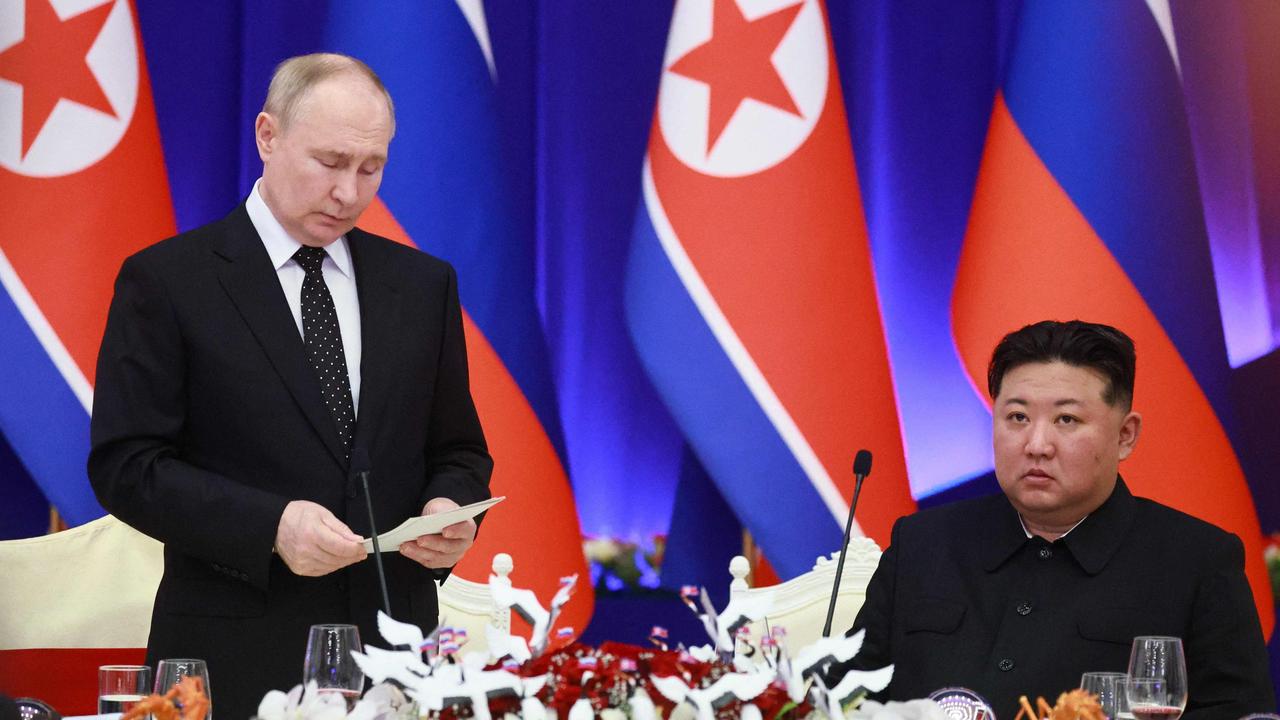
But while he said he understood western concerns about the risk of the possible expansion of the war, now in its third year, he downplayed any immediate threat to the global security architecture.
“In reality, I find it hard to see North Korea presenting a threat of escalation,” he said, calling the North a “small dictatorship”.
On Thursday, Russian politicians voted unanimously to ratify a treaty with North Korea that provides for “mutual assistance” if either party faces aggression. South Korea warned it “won’t sit idle” over the North’s deployment of troops.
‘No Triple Alliance’
“We are no longer in a conflict between Russia and Ukraine, but between Russia, North Korea and Ukraine,” said Marie Dumoulin of the European Council on Foreign Relations (ECFR).
But analysts said it was unclear how North Korean troops will be used in what has become Russia’s war of attrition against Ukraine, adding the North’s forces do not have combat experience.
“I don’t think that sending a few thousand North Korean troops, whose level of training we don’t know, will make much difference on the battlefield in operational terms,” said Dumoulin.
“In any case, 10,000 soldiers is not that many,” added Isabelle Facon from the France-based Foundation of Strategic Research.
Russia has a long history of ties with the Stalinist state. Moscow and the North have drawn closer since the invasion of Ukraine in 2022, with Seoul and Washington claiming North Korea has been sending weapons for use in the conflict.
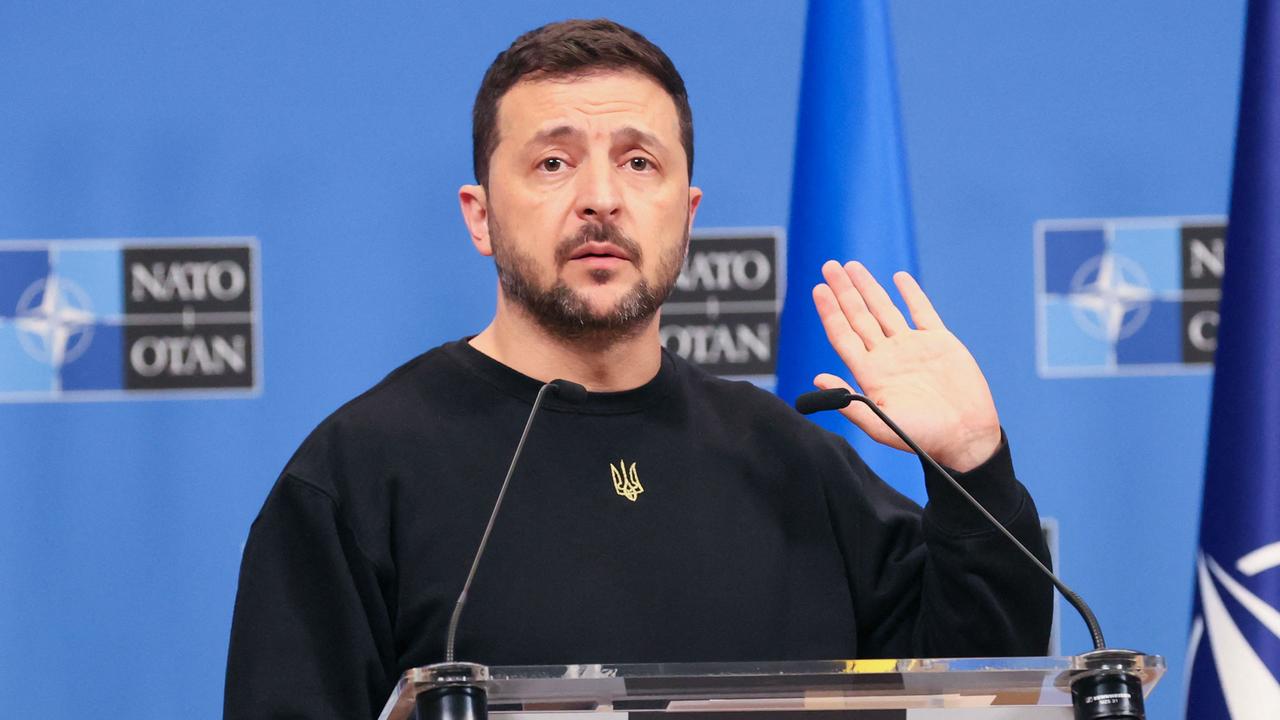
Analysts say the new “strategic partnership” between Moscow and Pyongyang is in line with President Putin’s efforts to reshape the global security architecture and build an alliance to undermine the dominance of the United States.
This week President Putin hosted around 20 leaders including Chinese President Xi Jinping and Indian Prime Minister Narendra Modi at the BRICS summit, the largest diplomatic event in Russia since Putin invaded Ukraine.
But experts said they did not believe China and Iran would become directly involved in Ukraine.
More Coverage
“There is no Triple Alliance or Triple Entente,” said Dayez-Burgeon, referring to power blocs before the outbreak of World War I in 1914.
“That would certainly be the case if China or Iran were to enter the conflict, but that’s just not the case,” he said, adding China’s focus is on Taiwan and Iran has vital interests in the Middle East.
— with AFP






